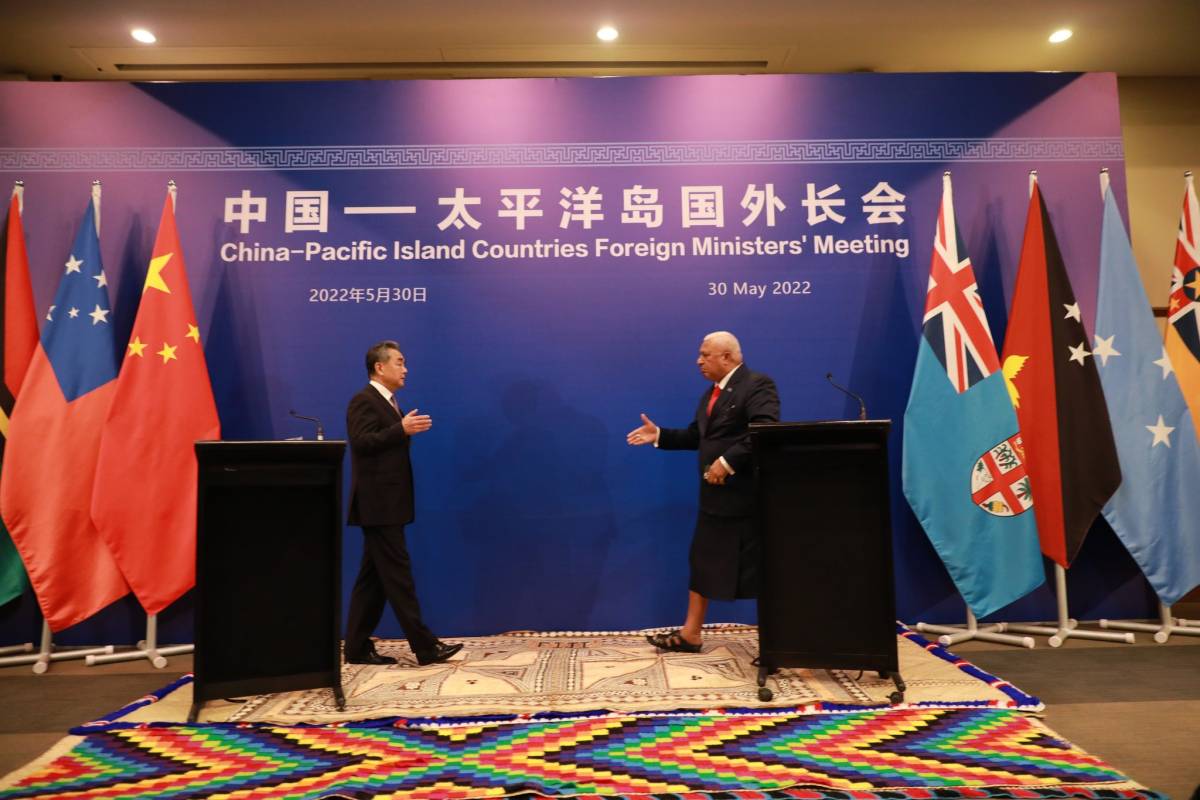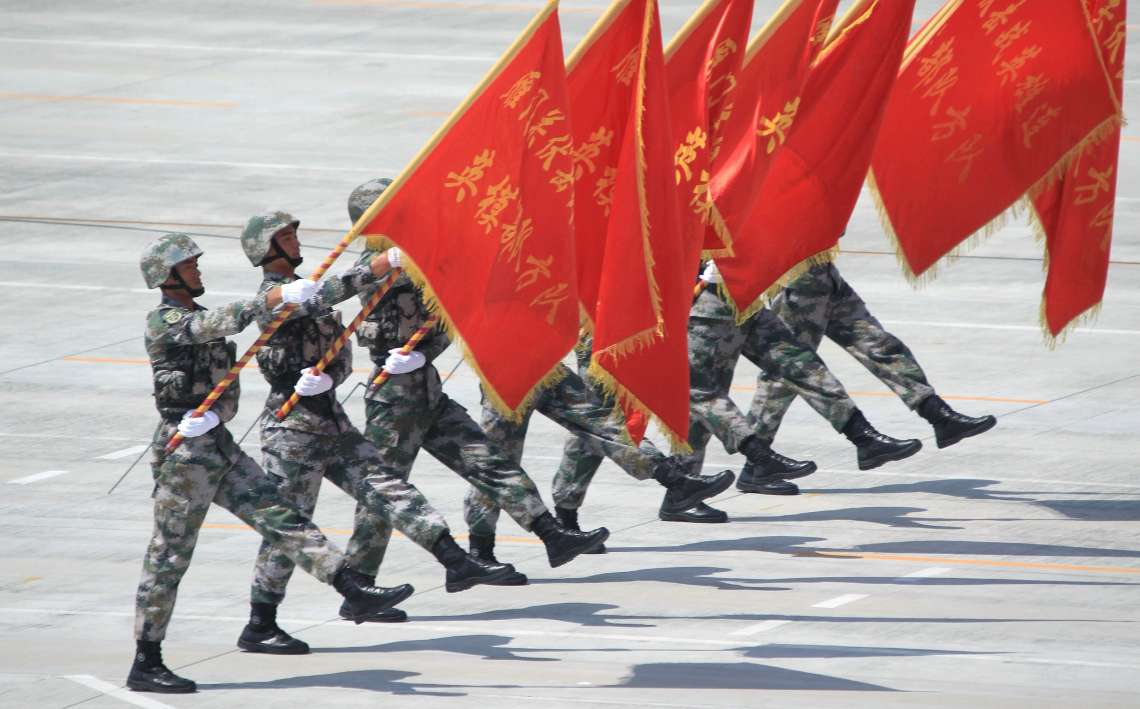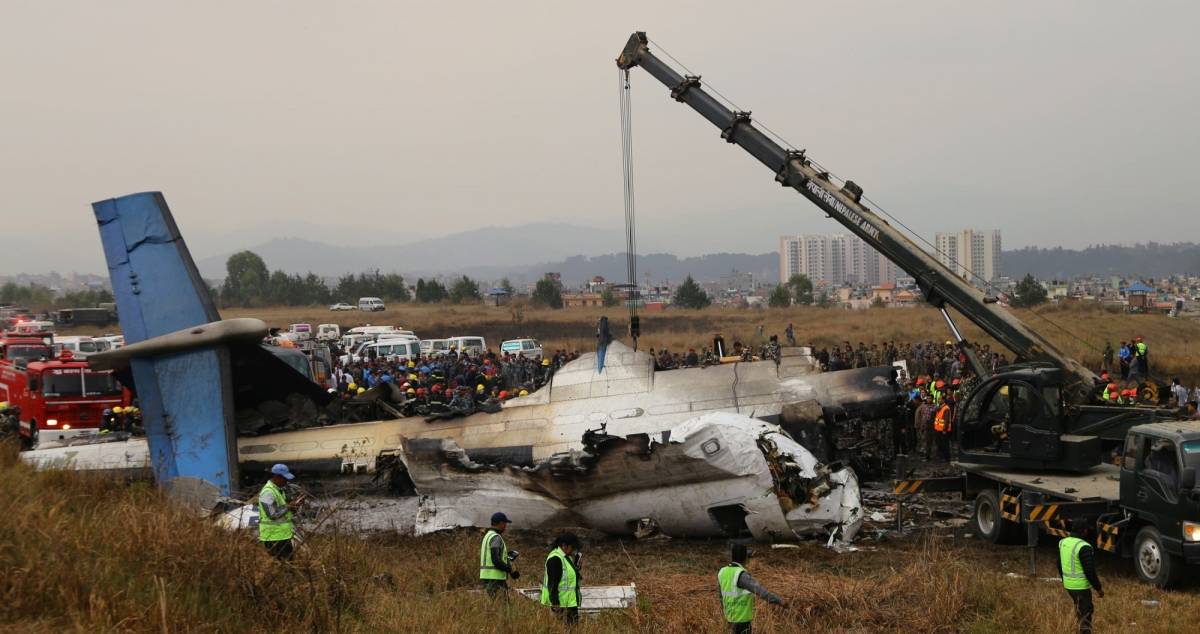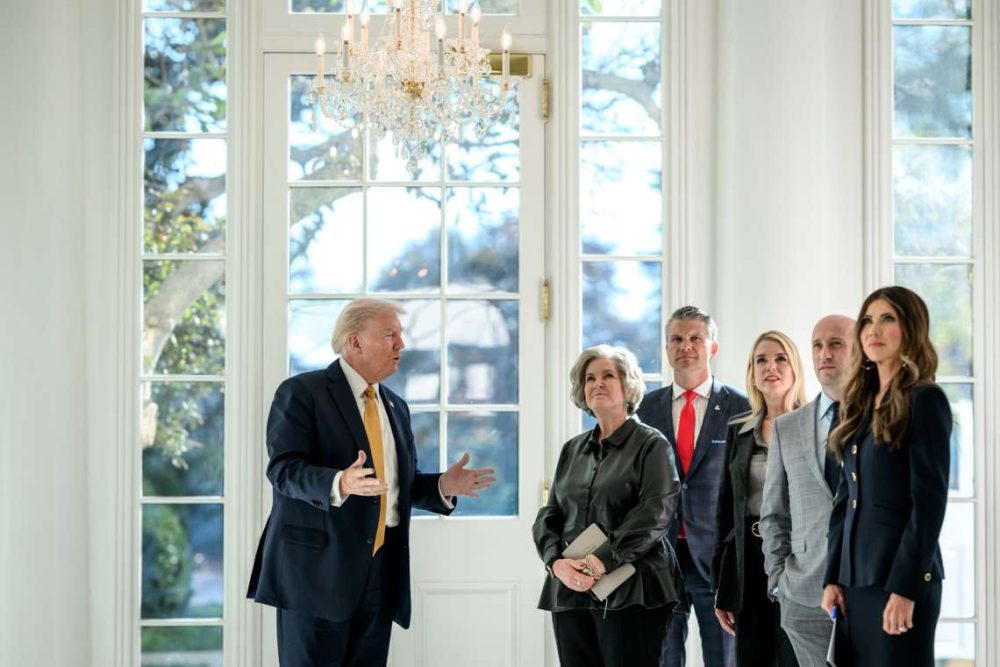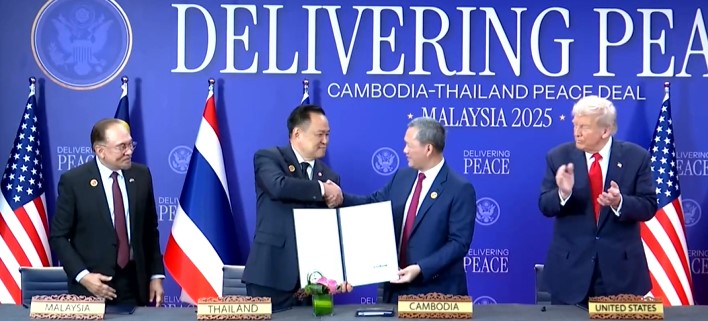The Asian giant is offering to radically ramp up its activities in the South Pacific, directly challenging the influence of the United States and its allies in the strategically vital region…reports Asian Lite News
Ten Pacific island nations have rejected Beijing’s proposal for a regional security pact, media reported.
Chinese Foreign Minister Wang Yi is on an eight-nation tour to the Pacific region with visits to the Solomon Islands, Kiribati, Samoa, Fiji, Tonga, Vanuatu, Papua New Guinea and East Timor from May 26 to June 4.
Prior to his visit, Beijing sent the drafts of the deal to 10 Pacific countries. Covering a range of issues, the documents appear to be a joint communique that Beijing wants the countries to adopt. They offer a detailed outline of how Beijing seeks to win friends and gain greater access to the island chains that have long played a strategic role in Asia’s geopolitical contests.
However, in a major setback, the talks in Fiji between Wang Yi and leaders from the small island nations failed to reach an agreement.
The Asian giant is offering to radically ramp up its activities in the South Pacific, directly challenging the influence of the United States and its allies in the strategically vital region, it was reported.
The proposed pact would see Beijing train Pacific island police, become involved in cybersecurity, expand political ties, conduct sensitive marine mapping and gain greater access to natural resources on land and in the water.
As an enticement, Beijing is offering millions of dollars in financial assistance, the prospect of a potentially lucrative China-Pacific islands free trade agreement and access to China’s vast market of 1.4 billion people.
However, the leaders of the Pacific nations have voiced deep misgivings about the offer.
In a recent letter to fellow leaders, David Panuelo, the President of the Federated States of Micronesia, warned the offer was “disingenuous” and would “ensure Chinese influence in government” and “economic control” of key industries.
A more soft-spoken public rebuke came after the talks, when leaders said they could not agree to Beijing’s proposed “Common Development Vision” due to a lack of regional consensus, it was reported.
“As always, we put consensus first,” co-host and Fijian Prime Minister Frank Bainimarama said after the meeting, indicating that broad accord would be needed before inking any “new regional agreements”.
Papua New Guinea, Samoa and the Federated States of Micronesia were said to be among those concerned about the proposals, along with Taiwan-recognising Palau, which was not invited, the report added.
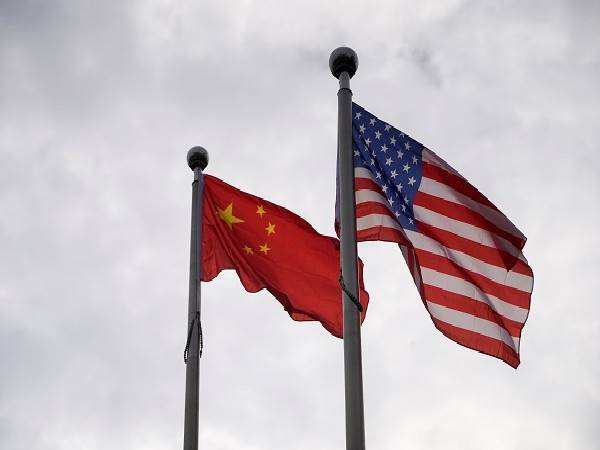
Security risks for US
Even as China continues its attempt to expand its reach in the Pacific by negotiating the security deals with the Pacific Island Countries like Kiribati, the security risks for the US State of Hawaii, which is only 2000 miles from Kiribati, are running high especially as Hawaii’s Congressional delegation turns down USD 2 billion missile defence radar for the island after years of fighting in support of the project.
Amid China’s increasing dominance in the pacific islands, US Missile Defense Agency (MDA) wanted to get radar installed in Hawaii to protect the territory from ballistic missiles by the end of 2028.
The installation of a radar project to protect Hawaii was in accordance with the fiscal 2022 National Defense Authorization Act released last year, however, this project never saw the light of the day, reported Eurasian Times.
In a shocking action by Hawaii’s Congressional delegation, this nearly USD 2 billion project was turned down.
Congress backed away from this missile defence radar after years of fighting in support of the project — first on Oahu (an island in the Central Pacific which is part of the Hawaiian island chain), then on Kauai (another part of the Hawaiian archipelago), local media Honolulu Civil Beat reported.
The timing for shelving these plans for installing this crucial security system is not good as Chinese Foreign Minister is on a 10-day tour of Pacific island nations.
US Senator Mazie Hirono, who has pushed for the proposed Homeland Defense Radar – Hawaii has now refused to push the project, as per the media portal.


